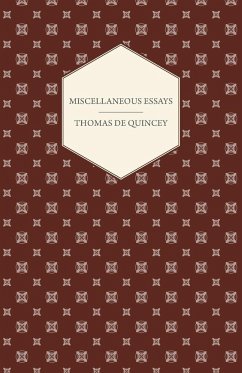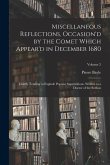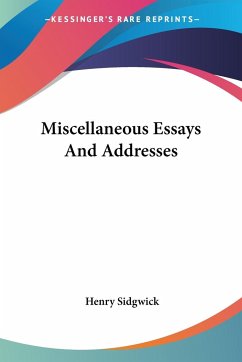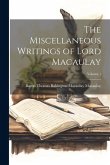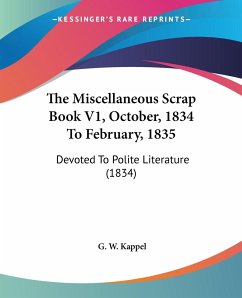This work contains a fascinating collection of essays by Thomas De Quincey. Thomas Penson De Quincey (1785 - 1859) was a seminal English essayist. He is most famous for "Confessions of an English Opium-Eater" (1821), which gained him fame almost overnight and inspired the tradition of addiction writing in the West. This volume will appeal to fans and collectors of De Quincey's work, and would make for a worthy addition to any bookshelf. The essays contained herein include: "On the Knocking at the Gate in Macbeth", "Murder, Considered as one of the Fine Arts", "Second Paper on Murder", "Joan of Arc", "The English Mail-Coach", "The Vision of Sudden Death", and "Dinner, Real and Reputed". Many antiquarian books like this are increasingly rare and expensive, and it is with this in mind that we are republishing this book now in an affordable, modern edition complete with a specially commissioned biography of the author.
Bitte wählen Sie Ihr Anliegen aus.
Rechnungen
Retourenschein anfordern
Bestellstatus
Storno

